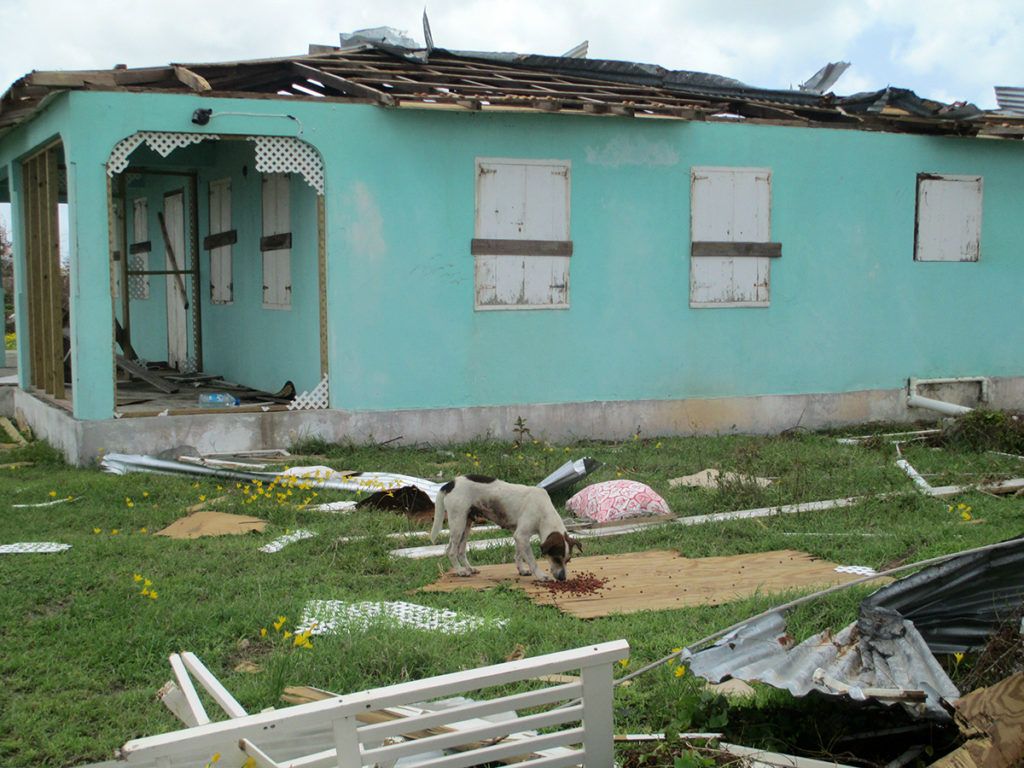With the devastating impact of Hurricanes Harvey and Irma still fresh in our minds and hearts, now is the perfect time to make sure you have a plan that protects both you and your animals when disaster strikes.
No one wants to face catastrophe, but with some simple preparation you can lessen your stress and be ready to get you and your pets to safety. They depend to on you to protect them, so don’t let them down.
World Animal Protection has more than 50 years of experience protecting animals and communities before, during and after a disaster. Follow our checklist below and visit us online for more tips to get prepared.
Food:
Store at least five days of non-perishable pet food (canned or dried) in an airtight, waterproof container (remember the can opener!). Ideally this should be the same food as you normally feed your pet to avoid stomach upsets by changing their diets in a stressful time.
Water:
Store at least five days of water for your pet, in addition to the water you need for your family (remember, an animal can drink more water than usual when under stress). Plus you will need extra water to clean up after your pet.
Supplies and carrier:
Know where your pet carrier is and make sure it’s a reasonable size to comfortably fit your animals. Make sure to also have five days’ worth of litter (for cats) and poo bags (for dogs). Clean towels help keep your animal dry and add familiar smells and comfort during a stressful time.

Image credit: Antigua and Barbuda Humane Society
Medicines and supplements:
Store any extra supply of medicines your pet needs in a waterproof container, as well as any special dietary needs or supplements.
Veterinary/Medical Records:
Store copies of any medical and vaccination records in a watertight container or plastic baggie, including your vet’s name and telephone number in case you have to shelter your pet or place them in foster care.
First Aid Kit:
Prepare a first aid kit for your pet. Talk to your vet about any specific requirements such as tick/flea prevention, antibiotic ointment and saline solution (i.e. eye wash solution separate from your family use)
ID tags
Make sure your pet has an identification tag or chip, as you may get separated in a disaster. It’s also handy to have a recent photo of your pet. If you happen to get separated, the more identification you have, the better.
Vaccinations / Immunizations
Ensure these are up to date following a schedule recommended by your veterinarian
Evacuation site / plan
Before a disaster strikes, plan ahead for what your animals need. Check in with local authorities to see if shelters accept animals. Know their location. Have a plan where to go in the event of an evacuation order. Check in with relatives and friends to ask if they would take in your pet if you needed to stay with them temporarily. Familiarize yourself with your building and community evacuation routes.
Training
Train your pets to get inside pet carriers, to walk on a leash, to walk comfortably on stairs, and to ride in vehicles so in the event you need to evacuate, these are familiar things for your pet.
Help support WAP’s work to protect animals in the aftermath of Hurricane Irma and other disasters now.






